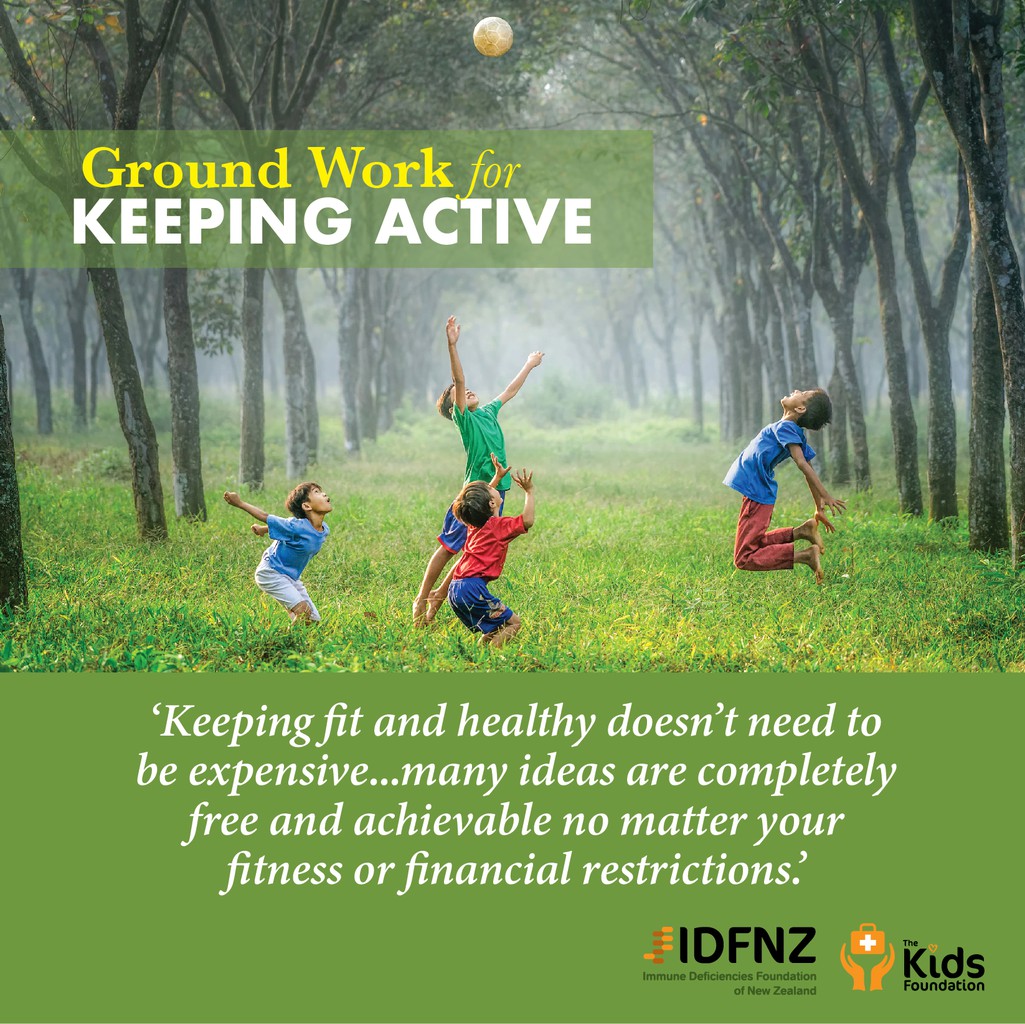Ground Work for Keeping Active Pt.1
Mon Jan. 16th 2023

"Keeping fit and healthy doesn't need to be expensive...many ideas are completely free and achievable no matter your fitness or financial restrictions"
Ground Work for Keeping Active
A child’s face, beaming with joy and excitement - it’s a happy picture! Children and teens love to play, they love to be active - yet in today’s world it’s becoming a struggle. Many families are finding it difficult to get outdoors, and their attempts to keep fit diminish all too quickly. The need to counter the harmful trends of ‘too much sitting’ and ‘too much screen time’ becomes urgent when you consider that only 7 percent of children and young people aged 5-17 met the Ministry of Health guidelines of at least one hour of moderate to vigorous activity a day. In addition, 4 in 5 children aged 5-14 years usually watched screens for 2 or more hours per day. (Active NZ Survey 2020).
Children and teens around the world are not moving enough to promote healthy lifestyles and physical development. It can be hard for kids to get enough daily activity. This can be due to demands at school, sickness or frequent hospital stays, a lack of active role models, busy family life, or a feeling amongst some kids that they aren’t good at sport. Even when children have the time and desire to be active, parents feel uneasy about letting them roam freely in the neighbourhood as kids did generations ago. Still, it is worth finding a way around these barriers, and you can teach a love of play and physical activity that will help to keep your child physically fit. Doing so will set healthy patterns that they will thank you for well into adulthood.
Benefits
Anyone who's watched the scene at a playground knows that most kids love to move around and are naturally active. Climbing, jumping, swinging, skipping, sliding, running. Physically active children are more likely to be motivated, focused and successful in school. In addition, regular exercise provides all of these benefits:
Builds strong muscles and bones
Maintains a healthy weight
Helps with getting quality sleep
Decreases the risk of developing type 2 diabetes
Develops co-ordination, flexibility and balance
Improves overall health and fitness
These are just some of the physical benefits from keeping active, but there are more to be gained with respect to mental health as well. Active children have better mood control, better behaviour, and are more confident in social settings. With exercise, either gentle or more rigorous, our breathing increases and our heart starts pumping more oxygen-filled blood to our muscles. This increased blood flow benefits our brain, by allowing it to function better. That feeling of mental clarity after a brisk walk is the result of blood flow to the brain, and we tend to be more focused after exercise of any kind. Physical exercise changes the level of serotonin in the brain by increasing the levels of endorphins (the “feel good” hormones). Numerous studies have shown that exercise is one of the best prevention and treatment strategies for depression
